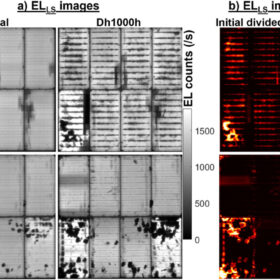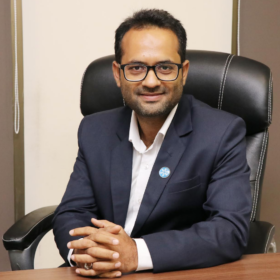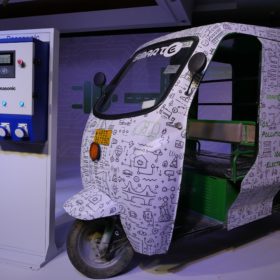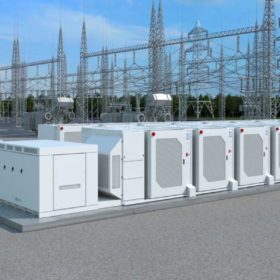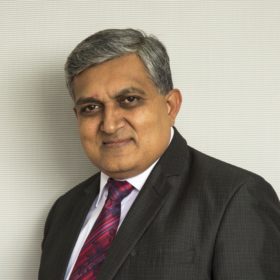The India Energy Storage Alliance (IESA) marked a significant milestone at the World Energy Storage Day (WESD) 2023 Global Virtual Conference & Expo, where energy storage, clean tech and EV experts hailing from 70 countries came together. Prime Minister Modi’s vision underscores the urgency of redeveloping the mobility ecosystem in harmony with the environment. In his recent address, he highlighted the need for sustainable mobility solutions, emphasising the critical role of electric vehicles and energy storage technologies in achieving this goal. This vision set the stage for the conference, where experts discussed how energy storage and electric mobility can align with the Prime Minister’s vision for a greener India.
Dr. Rahul Walawalkar, Chair, WESD, Founder and President of India Energy Storage Alliance and President & MD, Customized Energy Solutions (CES), India said, “India Energy Storage Alliance is anticipating that the first giga factories in India will start commercial production in 2024 and installed manufacturing capacity should scale to 50+ GWh by 2027-28 and scale to 160+ GWh annual capacity by 2030. IESA has also set a vision to further scale this capacity to 500+ GWh by 2035. In addition, there is a great opportunity for localising key components of giga factories such as Cathode, Anode, separator, Electrolytes etc. with the need for alternate supply chain in developed markets such as US and European Union. Indian supply chain industry could scale to 1000+ GWh scale with enabling policy and regulatory framework. We are excited with the immense response received from Niti Aayog, MHI and Ministry of Mines for this vision.”
“India’s success in scaling shared mobility and electric bus deployment can serve as a blueprint for other regions, including the Middle East and Europe. The demand for passenger cars in developed markets like Europe and the US, coupled with government incentives and regulations, positions them as the next major markets for EVs after China.”, he further added.
The conference’s focus on e-mobility trends in the R2 region, encompassing India and SAARC nations, provided a powerful platform for stakeholders to delve into the nuances of EV adoption. “India is becoming a manufacturing hub for EVs, led by robust local manufacturing and an innovative ecosystem. Not just in terms of assembly, the country is spearheading innovation in the engineering and R&D front as well, especially in the E2W space, primarily led by the domestic demand”, said Swapnil Jain, CTO of Ather Energy.
Anmol Jaggi, Founder of Blu Smart, underscored the economic benefits of electric vehicles, emphasising substantial fuel cost savings for fleet operators. “People are able to do the math and even ready to pay high to reap the benefits of the EVs, but lack of charging stations inevitable brings range anxiety”, he said.
Anant Nahata, MD of Exicom Tele-Systems Limited, stressed the pivotal role of a robust charging infrastructure in India’s EV adoption journey. He said “India is witnessing a lot of in-house R&D to make the products more reliable and offer higher uptime. The current focus is to be on improving the reliability of chargers and enhance remote management and servicing of EV chargers”.
Dr. Imre Gyuk, from the US Department of Energy, mentioned that his conversations indicated the industry did not face any technological barriers to long-duration energy storage.
Dr. Judy Jeevarajan, Vice President and Executive Director, Electrochemical Safety Research Institute (ESRI), UL Research Institutes, agreed that different chemistries serve different purposes and that stakeholders setting up energy storage capacities – be it companies or governments – will have to likely deploy a wide array of battery chemistries.
The platform also witnessed unique workshops emphasising the critical need for comprehensive guidelines in safety education across the entire ecosystem, from first responders to electricity inspectors. The workshops also highlighted the need to proactively establish standards to prevent potential issues, especially in battery energy storage systems. On the workforce front, experts at the workshop agreed that skilled professionals will be the linchpin of the industry’s growth in the coming decade. With the rapid deployment of energy storage and mobility technologies, India needs to invest in massive workforce development.
About India Energy Storage Alliance (IESA):
India Energy Storage Alliance (IESA) is a leading industry alliance focused on the development of advanced energy storage, green hydrogen, and e-mobility technologies in India. Founded in 2012, by Customized Energy Solutions (CES), IESA’s vision is to make India a global hub for R&D, manufacturing, and adoption of advanced energy storage, e-mobility, and green hydrogen technologies.
The alliance has been at the forefront of efforts seminal in shaping an enabling policy framework for the adoption of energy storage, electric mobility, green hydrogen, and emerging clean technologies in India.
With close to a decade of experience, IESA provides its member network a holistic eco-system to network and grow their business in India and world over by providing in-depth analysis of the market, facilitating dialogue between industry and government stakeholders, and providing the latest skill-development training. Over the years, IESA has launched several initiatives that support its member companies to stay ahead of the curve.
Today IESA is a proud network of 160+ member companies, encompassing industry verticals from energy storage, EV manufacturing, EV charging infrastructure, green hydrogen, microgrids, power electronics, renewable energy, research institutes and universities, and cleantech startups.

